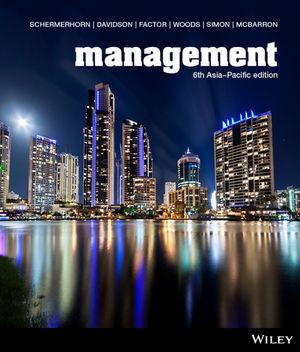Businesses and workplaces in Australia have generally recognised the value of cultural diversity in their workforce, particularly
Question:
Businesses and workplaces in Australia have generally recognised the value of cultural diversity in their workforce, particularly when they are designing and delivering services to Australia’s multicultural consumers. Occasionally, however, these organisations have to deal with incidents of discrimination and perceived discrimination. Often these incidents are sparked by external events, such as a perceived rise in the discrimination of Muslims associated with Sydney’s Martin Place siege in December 2014. In this incident, a gunman took 17 hostages, two of whom died during efforts to break the siege. The gunman identified himself as a Muslim and in the aftermath of the incident many Australian Muslims reported a rise in apparent anti‐Muslim sentiment in workplaces and on public transport.
As a response to the original incident, many Australian Muslim groups condemned the actions of the lone gunman. Social media also played a role in diffusing community tensions associated with the tragic incident. People from the broader Australian community began posting images and statements with the hashtag ‘#illridewithyou’ in an attempt to support Muslims who felt intimidated when using public transportation. Also, community leaders such as Associate Professor Mohamad Abdalla from Griffith University and Ali Kadri from the Islamic Council of Queensland provided balanced commentary on the situation through media outlets in an attempt to build bridges of understanding between Muslims and others.
In addition, many Muslim groups in Australia stepped up their efforts to build bridges of understanding between followers of Islam and others, and leaders from the Prime Minister down called on Muslim communities to do more to combat homegrown terrorism in Australia. Many of these organisations were originally established as religious and community support organisations and they have expressed that they are ill‐equipped to deal with counter terrorism or even to try and deal with the negative community perceptions directed against their members. Muslim organisations in Australia have struggled with the competing pressures of community education, mutual support for members, assistance for newly arrived refugees and assistance with counter‐terrorism. All of this is often in the context of organisations that are sometimes led by relatively conservative men who are appointed to leadership on the basis of religious expertise, rather than other qualities associated with community dialogue. From an organisational perspective, however, this situation demonstrates the contrast between ‘virtual’ organisations such as the initiators of the #illridewithyou movement and traditional organisations such as the Islamic Council of Queensland. One is organic, reactive and short‐lived, whereas the other eventually adapts in order to deal with discrimination through expansion and improvement of its community education resources. Both structures seem relevant to dealing with negative community sentiment. The rise in reports of workplace discrimination demonstrate that the challenge remains for many businesses and workplaces to build organisations that are effectively able to respond to increased discrimination associated with terror‐related incidents.
QUESTION
How should companies be structured to deal with negative community sentiment about those they represent?
Step by Step Answer:

Management
ISBN: 9780730329534
6th Asia Pacific Edition
Authors: Schermerhorn, John, Davidson, Paul, Factor, Aharon, Woods, Peter, Simon, Alan, McBarron, Ellen





